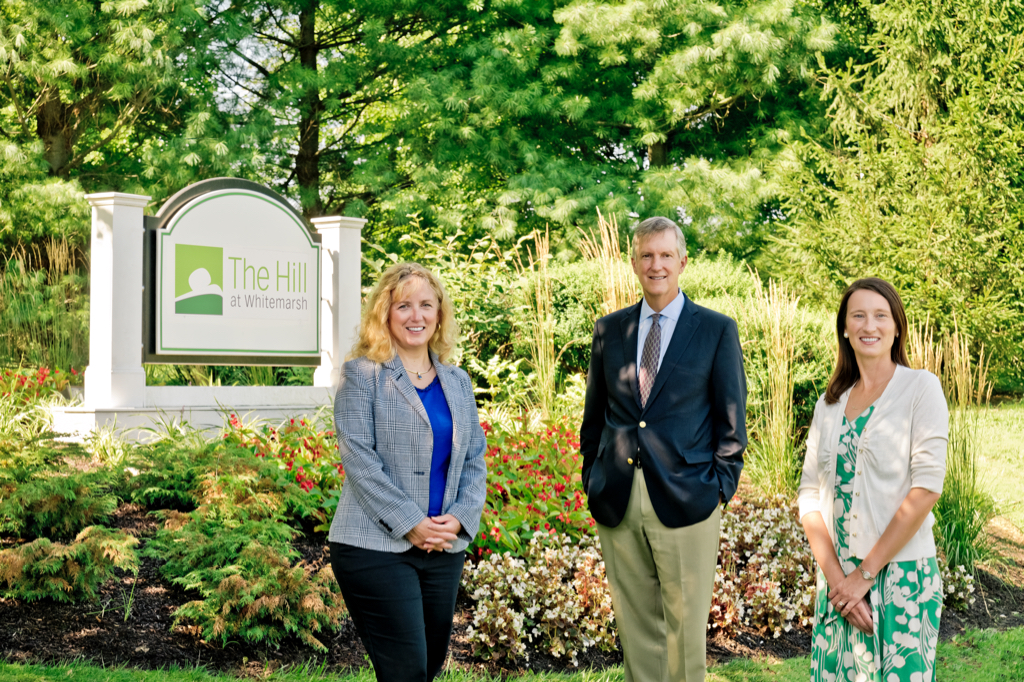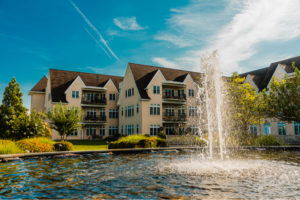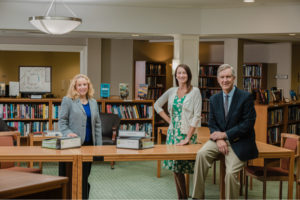The Hill Awarded With Second CARF Accreditation
Maintaining high standards of excellence in care

A seal of approval from the Commission on Accreditation of Rehabilitation Facilities (CARF) represents the best of the best when it comes to senior living communities. Out of the roughly 2,000 Continuing Care Retirement Communities across the United States, there are less than 200 that are CARF accredited, and The Hill at Whitemarsh is one of them.
“It’s like the Good Housekeeping seal of approval,” says Nicole Bennett, Director of Resident Services & Development for The Hill and a member of the CARF Leadership Team. “It shows that we have gone above and beyond, highlights the best practices across our internal departmental initiatives, and gives us more insight about industry-wide best practices as well.”
The process of becoming CARF accredited is no small task; the CARF Leadership team, which, in addition to Nicole is also composed of Stephanie Peter, Director of Finance, and Peter Fleming, Chief Operating Officer, started preparing for their first accreditation (which they received in 2015) 18 months in advance.
“There are over 2,000 standards that we have to comply with in order to become accredited by CARF, and we had a very organized team effort to not only make sure we hit each and every one, but to also align all the policies and procedures that are in place across independent living, assisted living, and skilled nursing,” says Stephanie.
The standards assessed as part of the CARF survey process focus on leadership, governance, resident programs, health and safety, workforce development, technology, and financial performance, among others. It goes well beyond the paper trail — there is an on-site survey that includes meetings with employees and residents to ensure that the policies and procedures documented on paper are implemented into real-life practice with respect to how services are delivered to residents.
 “In addition to establishing that we’re providing residents with the highest quality of care, the process also helps us create new policies and restructure our overall policy framework, if necessary,” says Peter.
“In addition to establishing that we’re providing residents with the highest quality of care, the process also helps us create new policies and restructure our overall policy framework, if necessary,” says Peter.
CARF was established in the 1960s to promote high standards of care and overall excellence within the aging services and senior living industries. CARF’s operational vision is to serve as a catalyst for improving the quality of life for people who receive services in these areas by encouraging “responsiveness to a dynamic and diverse environment.” The organization has been recognized by Presidents Carter, Reagan, and Bush Sr. for its commitment to continuing to push the standards for care forward in the United States.
According to Peter, receiving CARF accreditation establishes a baseline of quality across the senior care industry as a whole and ensures that the resident remains the main focus when it comes to setting priorities.
“As part of the survey process, we talk to staff, residents, vendors, family members — everyone,” says Stephanie. “We want to make sure that we are actually living by our written standards.”
“We are walking the walk in the way our team members are going about their daily tasks and routines,” adds Peter. “It forces us to examine our operations and think about how everything is being executed, down to the most minute detail. It also allows us to brag about what we’ve accomplished over a period of time, which makes all of us who work so hard every day feel really good about what we’re doing here.”
 Having just received their second five-year CARF accreditation — the highest honor an accredited service provider can receive — the CARF Leadership Team reflects on how much they’ve learned by going through the survey process twice.
Having just received their second five-year CARF accreditation — the highest honor an accredited service provider can receive — the CARF Leadership Team reflects on how much they’ve learned by going through the survey process twice.
“After the first time around, we introduced a session on CARF during our new employee orientation,” says Stephanie. “We look to instill a sense of pride in our employees. All of the team members know they are important, it’s not only about the residents.”
“The employees who were chosen to participate in the survey are really proud of their involvement,” adds Nicole. “It’s worth noting that we don’t have to apply for CARF accreditation; it’s something we have chosen to do because we believe in what it stands for.”
“The whole experience really reinforces The Hill’s mission, vision, and core values,” says Peter. “We’ve taken it on voluntarily to help make our community the best that it can be.”